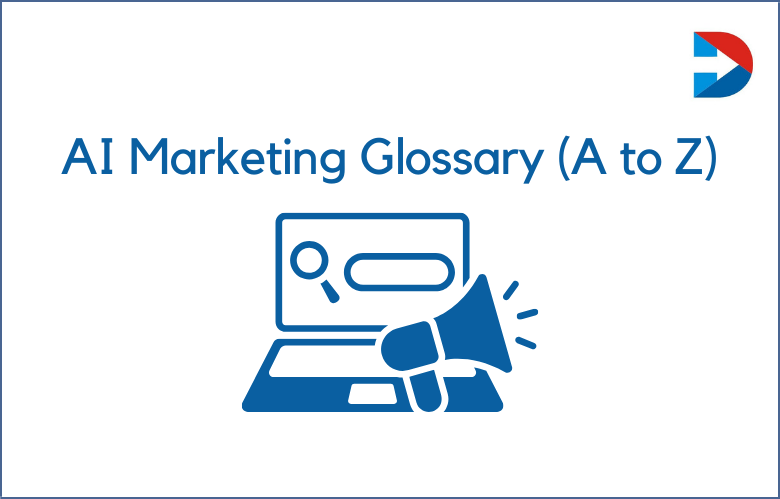
As content creators, we invest time, money, and effort in producing original work. It is only natural that we protect our intellectual property from unauthorized use or reproduction. Copyright infringement violates the creator’s rights and can result in significant damage and legal costs.
That’s why it is crucial to adopt measures that prevent copyright infringement. We will discuss copyright infringement prevention methods that you can use to safeguard your hard work.
What is Copyright Infringement Prevention?
In today’s digital age, the internet is a platform for artists, writers, musicians, and creators to share their content with the world.
But, with this convenience comes risk – the risk of copyright infringement. Copyright infringement prevention is a must-have strategy for protecting your intellectual property and creative works.
We’ll dive into what copyright infringement prevention entails and how you can safeguard your creations.
How to Protect Your Business from Copyright Infringement
Copyright infringement can be a nightmare for businesses. It erodes creativity and the value of your intellectual property and can cost your company significant legal fees and damages.
As a business owner, it’s crucial to understand the importance of protecting your creations from potential infringers. We will explore several effective ways to safeguard your business from copyright infringement.
Why is Prevention Crucial?
Copyright infringement prevention is vital because it helps safeguard your creative work. If someone else uses your content without permission, they not only profit at your expense, but they can also damage your reputation and brand. Furthermore, many artists rely on their creative works to make a living.
If unauthorized use occurs and they cannot stop it or collect damages, they could suffer significant financial losses. By taking preventative measures, you can protect your rights and ensure your creations remain yours.
What to Do if Copyright Infringement Occurs?
Despite taking preventative measures, there’s always a chance that copyright infringement will occur. If it does, you have several options available to you.
One is to contact the individual or company who has infringed on your copyright and request that they remove the content and cease all infringing activity.
If they refuse, you can file a lawsuit to take legal action against them. You may be entitled to damages, including lost profits, court, and attorney fees.
How Can Creators Protect Their Work?
Creators can protect their work by familiarizing themselves with copyright laws and consulting legal experts to ensure their licenses are effective. In this era of digital technologies, technology can play an influential role in prevention.
Creators can use digital watermarks that can embed their name, copyright information, and ownership into a file that identifies them as the owner of the work. They can also use Digital Rights Management (DRM) software to prevent unauthorized distribution or use of their content.
Final Thoughts on Preventing Copyright Infringement.
In conclusion, creating original content is no easy task, and the unauthorized use of it can cause significant losses to the creators.
Creatives must proactively protect their work and evaluate all available options to identify and prevent copyright infringement.
By being informed, creators can minimize the risk of infringement, protect their intellectual property rights, and ensure that their creative work is enjoyed legally.
Understanding Copyright Infringement Prevention.
Copyright infringement is a serious offense that can result in fines or jail time. Creators of original works need to understand the basics of copyright law and how it can protect their jobs from being misused or stolen.
Copyright infringement prevention is necessary to protect the creator’s rights and prevent others from profiting from their hard work without permission. We’ll discuss copyright infringement prevention and how it can benefit you as a creator.
Copyright infringement prevention refers to the strategies, laws, and policies that prevent people from using or selling someone else’s work without permission.
His can include anything from text to music, images, or videos. Copyright infringement prevention can occur both online and offline and is particularly important with the rise of digital technologies.
With so many people sharing and accessing content on social media and other digital platforms, it is easier than ever for someone to misuse copyrighted material.
Protect Your Work: A Guide to Copyright Infringement Prevention.
Copyright infringement is a serious issue that can affect artists, writers, musicians, and other content creators. It can be frustrating to see somebody else profit from your hard work, but fortunately, there are ways to protect your creations.
We’ll discuss some practical steps that you can take to prevent copyright infringement. Whether you’re a professional artist or a passionate hobbyist, these tips will help you safeguard your work.
How To Avoid Copyright Infringement
Understand what copyrights are and how they work. Copyrights are legal protections provided to the creator of original works such as books, music, movies, art, and software. You cannot use or copy someone else’s work without their permission or appropriate licensing agreement.
Conduct thorough research before using any copyrighted material. Ensuring you are not infringing on someone’s intellectual property rights is essential. You can use websites such as Copyright.gov and Creative Commons to check if a work is copyrighted, its owner, and its terms of use.
Obtain permission or licensing agreements before using copyrighted material. If you want to use someone else’s copyrighted work, you must request permission from the owner or pay for a licensing agreement. This ensures you don’t infringe on their work and avoid future legal issues.
Create your original works. The best way to avoid copyright infringement is by creating your original content. This will allow you to share your creativity while avoiding potential legal issues.
Know the fair use doctrine. Fair use is an exception to the copyright law that allows you to use copyrighted material for a limited purpose, such as commentary, criticism, news reporting, teaching, scholarship, or research. However, ensuring your use falls within the fair use doctrine guidelines is essential.
Keep up-to-date with copyright laws and regulations. Copyright laws can change, so staying updated with the latest rules and regulations is essential to avoid potential legal issues. You can sign up for email alerts from the U.S. Copyright Office or consult an attorney to keep yourself updated.
Use royalty-free images and music. If you want to use photos or music, you can search for royalty-free images and music available for free or cheaply. This will allow you to avoid any copyright infringement issues.
Avoid using copyrighted material without attribution. You could face legal issues if you use copyrighted material without proper attribution. To avoid this, ensure that you give suitable credit to the original owner of the copyrighted material.
Understand copyright law: The first step to avoid copyright infringement is to educate yourself about copyright law. You must understand what it covers, how long it lasts, and what materials can be copyrighted. Anything that can be recorded can be copyrighted, including books, music, software, and photographs.
Obtain permission: If you want to use someone else’s copyrighted work, you must first ask for permission. This means contacting the copyright holder and requesting permission to use their work. You may sometimes have to pay a licensing fee to use the material.
Use public domain materials: Public domain materials are works that are not copyrighted or whose copyright has expired. These materials can be used without permission or payment. Some examples of public domain materials include old books, art, and music.
Consider fair use: Fair use is a legal doctrine that allows using copyrighted materials for specific purposes, such as criticism, commentary, news reporting, teaching, scholarship, or research. However, fair use is not a blanket exemption from copyright law, and determining whether a particular use is appropriate depends on several factors.
Use original content: To avoid copyright infringement, you can create original content. This can include writing your articles, composing your music, or producing your videos. Doing your work means you don’t have to worry about infringing on someone else’s copyright.
Keep good records: If you use copyrighted material, keeping records of where you obtained the material and any permission given is essential. This will help protect you if you are ever accused of copyright infringement.
Consult a lawyer: If you’re unsure whether using copyrighted material is legal, it’s a good idea to consult a lawyer. A copyright lawyer can advise you on the best way to legally use copyright materials and help you defend yourself if you’re accused of infringement.
How to Prevent Copyright Infringement on Social Media
Understand copyright laws: It is essential to understand copyright laws to prevent infringement. Copyright laws vary from country to country, so it is necessary to ensure that you are familiar with the laws that apply to your location. Some basic concepts include fair use, licensing, and public domain.
Obtain permission when necessary: If you want to use someone else’s content, such as a photo or a piece of music, it is essential to obtain permission first. You can do this by contacting the content owner and requesting permission. Alternatively, you can look for licensed content for reuse, such as Creative Commons.
Give proper attribution: If you use someone else’s content, giving appropriate attribution to the owner is essential. This includes providing the owner’s name and a link to their content. This shows respect for the owner’s work and helps prevent any potential legal issues.
Use social media platforms that support copyright: Some social media platforms, such as YouTube and Instagram, have built-in copyright protection tools that can help prevent infringement. For example, YouTube has a Content ID system that automatically scans videos for copyrighted content and allows owners to block or monetize the video with ads.
Monitor your content: It is essential to regularly monitor your content to ensure that others have not infringed upon it. You can use various tools, such as Google Alerts or reverse image search engines, to help you find instances of your content being used without permission.
Educate yourself and others: Educating yourself and others on copyright laws and respecting intellectual property is essential. This includes educating your employees, members, or followers on social media platforms and ensuring they understand copyright infringement’s consequences.
Educate Yourself: As a social media user, it is important to understand copyright law. Learn about the different types of intellectual property, such as trademarks, patents, and copyrights, and their respective rights and limitations.
Obtain Permission: Always seek permission first when using someone else’s content. This includes images, videos, text, and music. Content creators are often happy to allow you to use their content for free if you credit them appropriately and follow their specific guidelines.
Use Royalty-Free Content: Some websites offer royalty-free content, which users can access for free or for a small fee. These websites provide a high-quality range free from royalties and licensing fees and can be used in any way you want.
Give Proper Credit: If you need to use someone else’s content, give proper credit. This includes tagging the content creator or source in the post, adding a watermark to images, and citing sources in the caption or description.
Understand Fair Use: Certain situations exist where using someone else’s content is considered “fair use” under copyright law. This may include using a small portion of someone else’s work for commentary, criticism, or news reporting. However, it is essential to note that fair use is a complex legal concept and should be used cautiously.
Monitor Your Content: Regularly check your social media accounts for any unauthorized use of your content. Many social media platforms have tools that allow you to report copyright infringement and take action against users who violate copyright laws.
Consult with Legal Counsel: If you are unsure whether using someone else’s content is legal or have received a copyright infringement notice, it is best to consult a legal professional. They can guide you on adequately using copyrighted material and protect yourself from potential legal action.
Types of Copyright Infringement Prevention.
Understand Copyright Law:
The first step in copyright infringement prevention is to understand copyright law. Copyright is the legal right of the creator to claim ownership over their original works.
Copyright law exists to protect creators and prevent others from unlawfully using, reproducing, or distributing their works. Familiarize yourself with the basics of copyright law, including the copyright duration, fair use doctrine, and infringement penalties.
Register your Copyright:
Although copyright comes into being once you create the original work, it is essential to register it with the U.S.
Copyright Office to strengthen your rights and prevent copyright infringement. Registering your copyright is an easy and relatively inexpensive process that can provide significant benefits in a legal dispute.
Use Watermarks and Disclaimers:
Watermarking and disclaimers are valuable tools to deter copyright infringement and protect against unauthorized use.
A watermark is a visible overlay on your work that identifies the creator and serves as a notice that it is copyright protected. Disclaimers, on the other hand, inform viewers that the work is copyrighted and cannot be used without the creator’s consent.
Monitor your Work:
Monitoring your work helps you detect copyright infringement and track unauthorized use of your content. You can use online tools that monitor the web for violations, such as Google Alerts.
You can regularly check images and content for unauthorized use and quickly take action using cease and desist letters and takedown requests.
Educate Others:
Education is critical to preventing copyright infringement. Educate others about copyright law, your intellectual property, and the value of originality. This can include citing sources, obtaining permission before using someone else’s work, and giving credit where it is due.
Conclusion:
Copyright infringement is a real threat to content creators but also preventable. Understanding copyright law, registering your copyright, using tools like watermarks and disclaimers, monitoring your work, and educating others are all effective methods in the fight against copyright infringement. Protecting your hard work requires effort, but it is necessary to safeguard your rights as a creator.
Frequently Asked Questions (FAQs)
What is copyright infringement?
Copyright infringement occurs when someone uses copyrighted material without the permission of the owner, violating the exclusive rights granted by copyright law.Why is preventing copyright infringement important?
It protects creators’ intellectual property, preserves legal compliance, avoids lawsuits, and maintains ethical standards in digital and offline content use.What types of content are protected by copyright?
Copyright protects original works like text, images, videos, music, software code, designs, and other creative expressions fixed in a tangible medium.How can I check if content is copyrighted?
Assume all content is copyrighted unless labeled otherwise. Use copyright lookup tools, reverse image search, or contact the content creator for clarity.What is fair use, and when does it apply?
Fair use allows limited use of copyrighted material without permission for purposes like commentary, education, research, or parody—depending on specific criteria.How can businesses prevent copyright infringement?
Businesses should train teams, use licensed or original content, implement digital rights management (DRM), and maintain content audit logs.What tools can detect copyright infringement?
Tools like Copyscape, Google Reverse Image Search, Pixsy, Plagscan, and YouTube’s Content ID can help identify unauthorized use of copyrighted works.Can I use Creative Commons licensed content freely?
Yes, but you must follow the license terms—such as attribution, non-commercial use, or share-alike requirements—depending on the license type.What is a DMCA takedown notice?
A DMCA (Digital Millennium Copyright Act) takedown notice is a formal request to remove infringing content from a platform or website.How do I file a DMCA complaint?
You can submit a DMCA takedown request through the hosting provider, social media platform, or search engine that hosts the infringing content.Is watermarking effective in copyright protection?
Yes. Watermarks help assert ownership and discourage misuse by making unauthorized distribution more difficult or traceable.Can I get sued for using copyrighted content unintentionally?
Yes. Even unintentional infringement can lead to legal consequences, so it’s essential to verify usage rights beforehand.What are the penalties for copyright infringement?
Penalties range from cease-and-desist orders to financial fines and legal damages, depending on the nature and extent of the violation.How can content creators protect their work online?
They can register their copyrights, use copyright notices, implement DRM tools, and monitor online platforms for unauthorized use.What is copyright registration and is it necessary?
While copyright is automatic upon creation, registration provides legal proof and is required for initiating formal lawsuits in many jurisdictions.Can user-generated content lead to copyright issues?
Yes. Platforms must ensure that users have the rights to upload content and may be held accountable for hosting infringing material.What role does metadata play in copyright protection?
Embedded metadata in files can contain author information, usage rights, and timestamps—helpful in ownership disputes and tracking.Are memes and gifs subject to copyright laws?
Yes. While often shared widely, they are typically derived from copyrighted material and may infringe if used without permission or fair use justification.How can social media users avoid copyright infringement?
Avoid reposting copyrighted material without credit or permission, and use platforms’ built-in libraries for music, gifs, or licensed assets.What should I do if someone infringes my copyright?
Document the violation, attempt direct resolution, issue a DMCA notice, and if necessary, consult a legal expert or pursue legal action.



